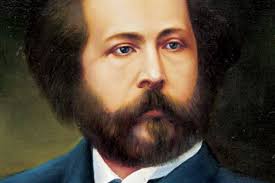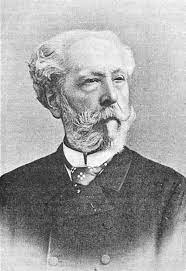Skip to content
- French Roots: Born on January 27, 1823, in Lille, France, Édouard Lalo was a prominent figure in the French Romantic music scene. His compositions were deeply rooted in the French tradition but also drew inspiration from Spanish and German influences.
- Late Bloomer: Despite his eventual success, Lalo didn’t achieve widespread recognition until later in life. He struggled with composing initially and focused on playing the violin. It wasn’t until his thirties that he began to gain recognition as a composer.
- Versatile Musician: Lalo was not only a composer but also a talented violinist and conductor. His proficiency with the violin greatly influenced his compositions, leading to works known for their technical demands and rich, expressive melodies.
- Friendship with Bizet: Lalo had a close friendship with another renowned composer of the time, Georges Bizet. They shared a mutual admiration for each other’s work and often sought each other’s advice and feedback on compositions.
- Spanish Influence: One of Lalo’s most famous works, the Symphonie espagnole, showcases his fascination with Spanish music. Written for violin and orchestra, this piece combines elements of Spanish folk melodies with classical form, creating a vibrant and captivating composition.
- Operatic Ambitions: While Lalo is best known for his instrumental compositions, he also ventured into the realm of opera. His opera “Le Roi d’Ys” is considered his most significant operatic work, blending dramatic storytelling with lush orchestration.
- Reluctant Pianist: Despite being a talented musician, Lalo was not fond of performing on the piano. He preferred composing and playing the violin over showcasing his piano skills in public.
- Academic Pursuits: Lalo’s musical education was diverse and extensive. He studied at the Paris Conservatoire under some of the most respected teachers of his time, including François Antoine Habeneck and Joseph-François Daussoigne-Méhul.
- Legacy of Influence: Lalo’s compositions had a lasting impact on future generations of composers, particularly in France. His innovative approach to orchestration and his ability to blend diverse musical styles left a significant mark on the development of French classical music.
- Posthumous Recognition: Although Lalo’s music enjoyed some success during his lifetime, it wasn’t until after his death on April 22, 1892, that his works began to receive widespread acclaim. Today, he is celebrated as one of the most distinctive voices of the Romantic era, known for his evocative melodies and expressive compositions.


Comments are closed